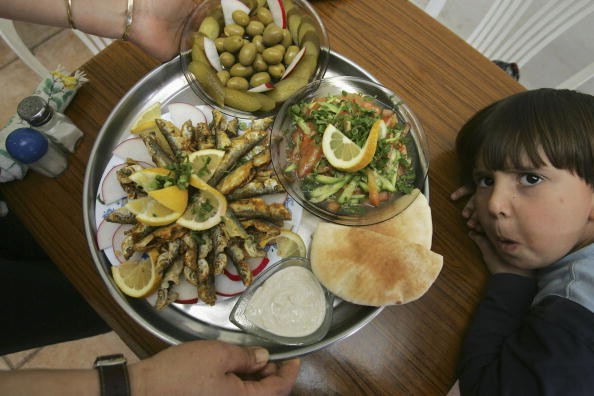
The Mediterranean diet appears to be linked with a reduced risk of developing breast cancer, according to a new study. This is the first time that a randomized trial found an effect of a long-term diet intervention on breast cancer incidence.
This diet is one that is rich in vegetables, fruits, whole grains, fish, and usually olive oil, and also low in dairy products and red meat. In this study, the researchers used one version of the diet that was supplemented with extra-virgin olive oil and a second version that was supplemented with various types of nuts. Both extra-virgin olive oil and nuts contain oil that is considered to be healthy for the heart.
The study, called the PREDIMED study, was conducted in Spain, where researchers randomly assigned 4,152 women to one of three eating plans: ether of the two variations on the Mediterranean diet, or a control group that was only given advice about reducing fat in their diet. The average age of the women was 68. The researchers controlled for many variables that can affect a woman's risk of developing breast cancer, including age, smoking, body mass index, family history of cancer, and physical activity.
The study followed the patients for an average of nearly 5 years. During that time, 35 of the women developed breast cancer. Compared with the women who were advised to eat less fat, the women on the Mediterranean diet that was supplemented with extra-virgin olive oil had a 68% lower risk for breast cancer. The women who ate a Mediterranean diet supplemented with nuts also a lower risk, but the reduction was not statistically significant.
The results of the trial are based on a relatively small number of women who develop breast cancer. The findings will need to be confirmed in a longer and larger study.
The study was published in JAMA Internal Medicine.

